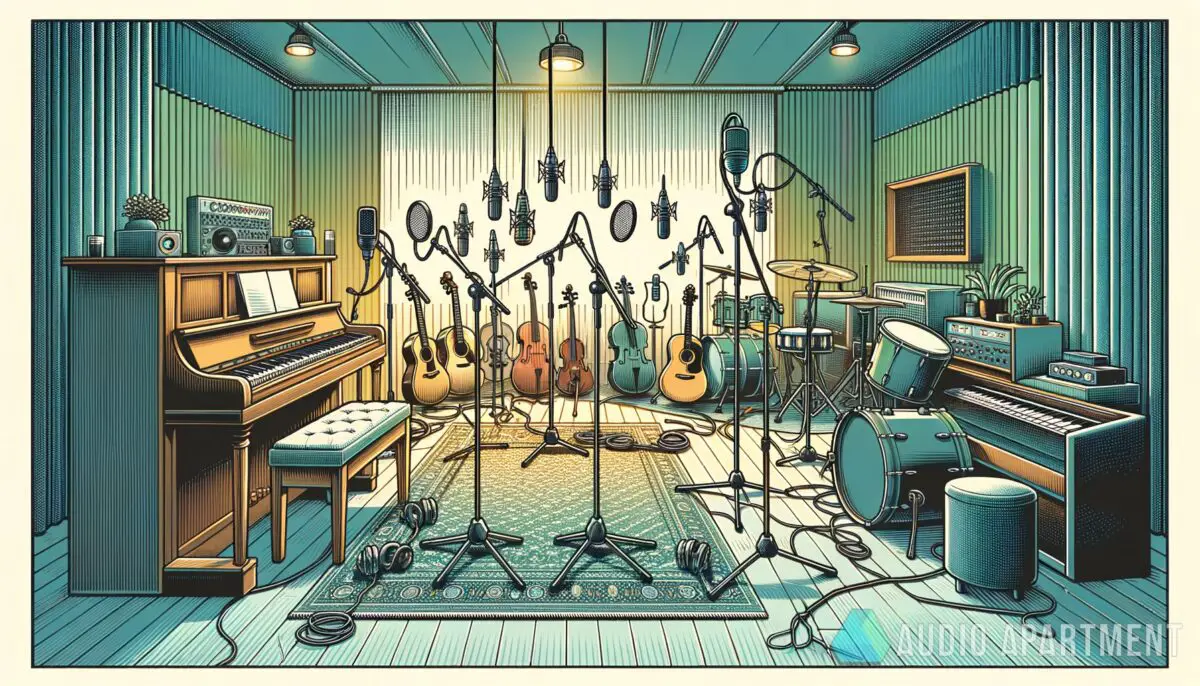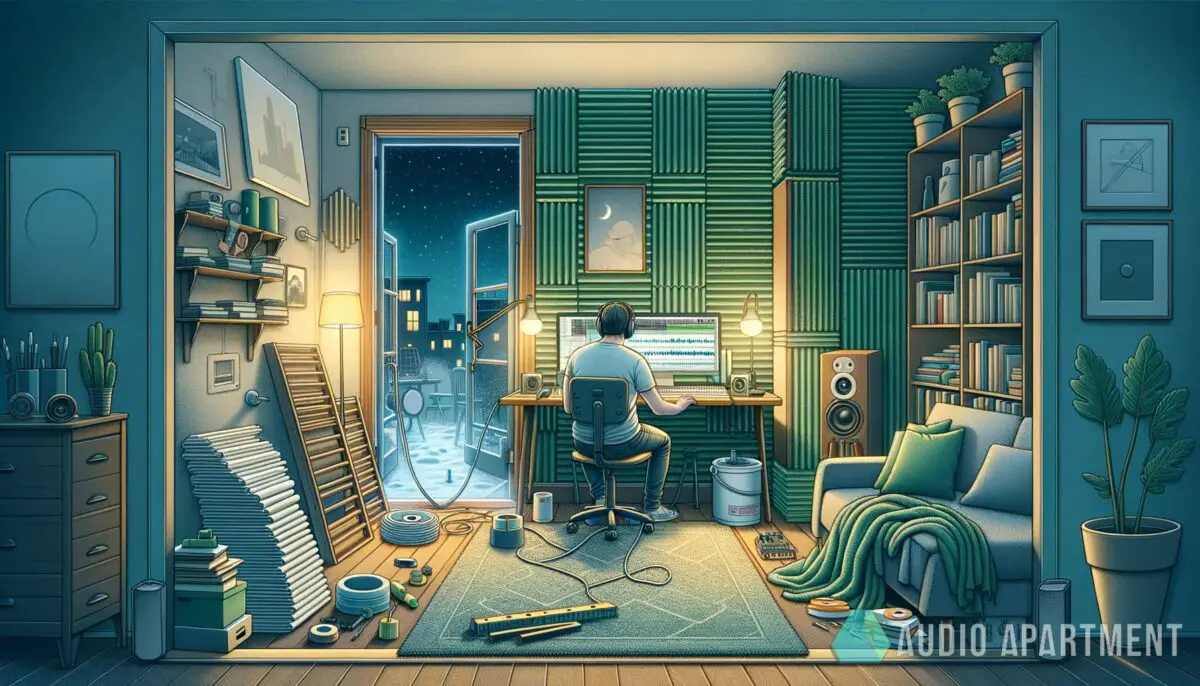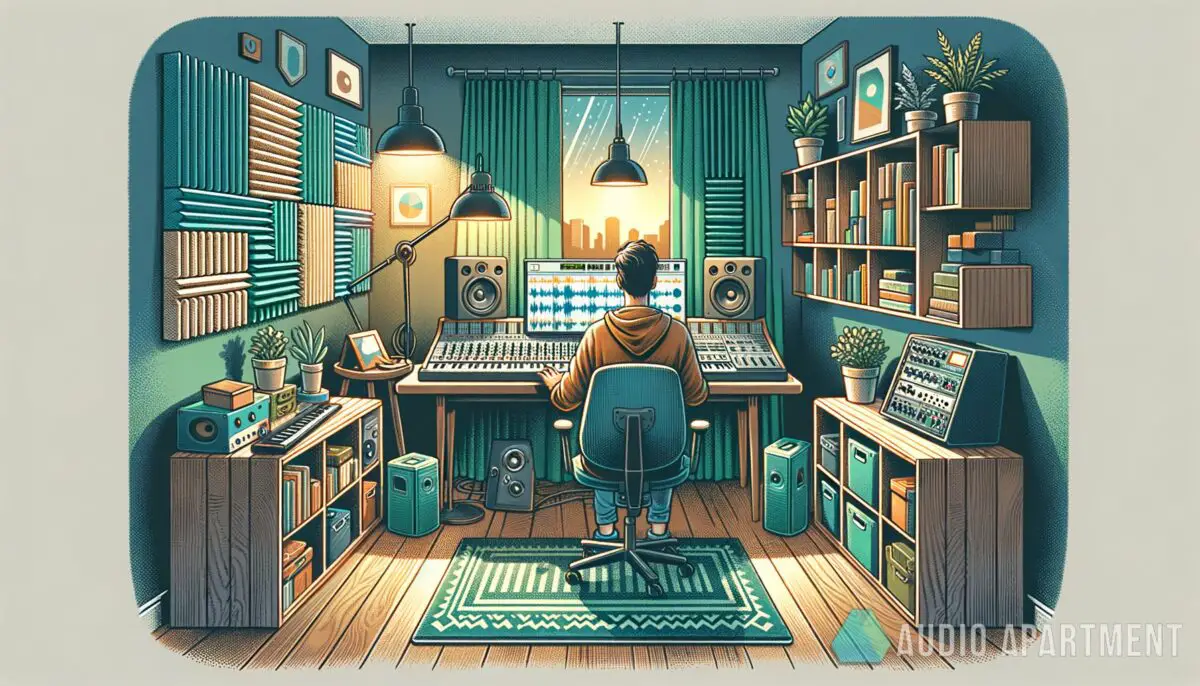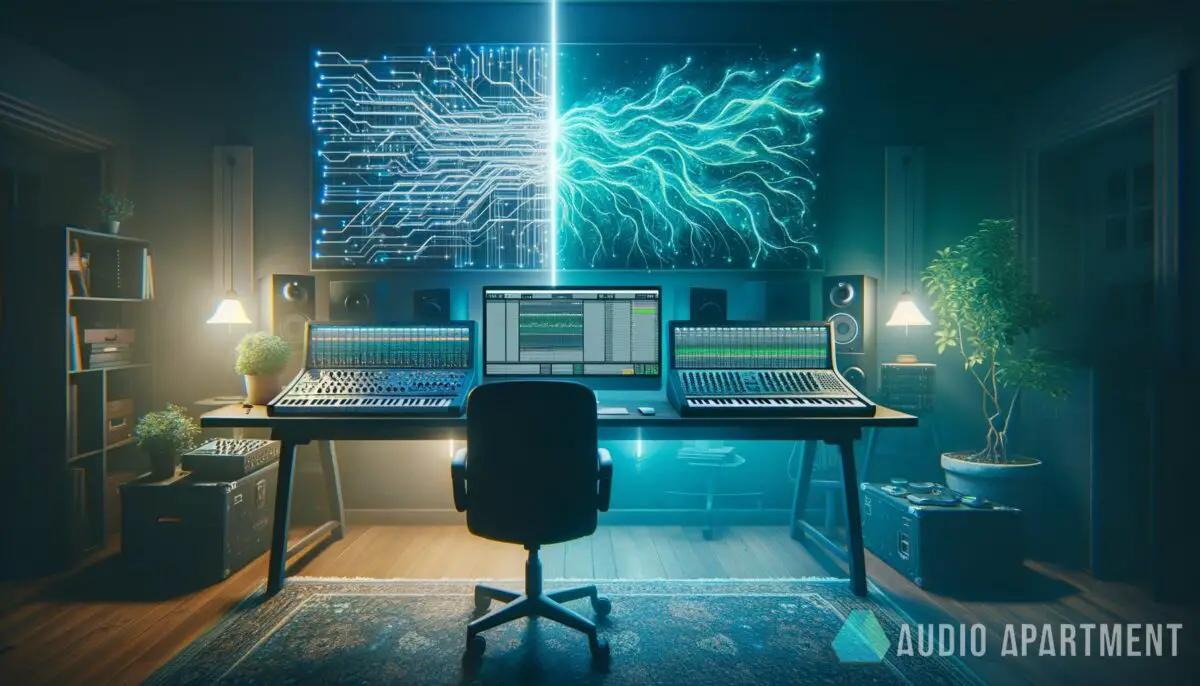Are you ready to spin your way into the groove? Ever wondered what makes a turntable tick? Step into the world of vinyl as we unravel the mysteries of this iconic music machine. Whether you’re a budding audiophile or a curious music enthusiast, join us on a journey to discover the essence of turntables and the melodic wonders they hold.
What is a turntable? A turntable is a standalone unit used to hold and spin records, requiring external components for sound amplification and playback. It is a classic device that breathes life into vinyl records, inviting you to immerse yourself in the rich, warm sound of analog music.
What is a turntable, and how does it work?
A turntable is like the foundation of a groovy vinyl experience. It’s that cool standalone unit that holds your precious records and spins them like a DJ on fire. But hold up; there’s a little more to it than meets the eye.
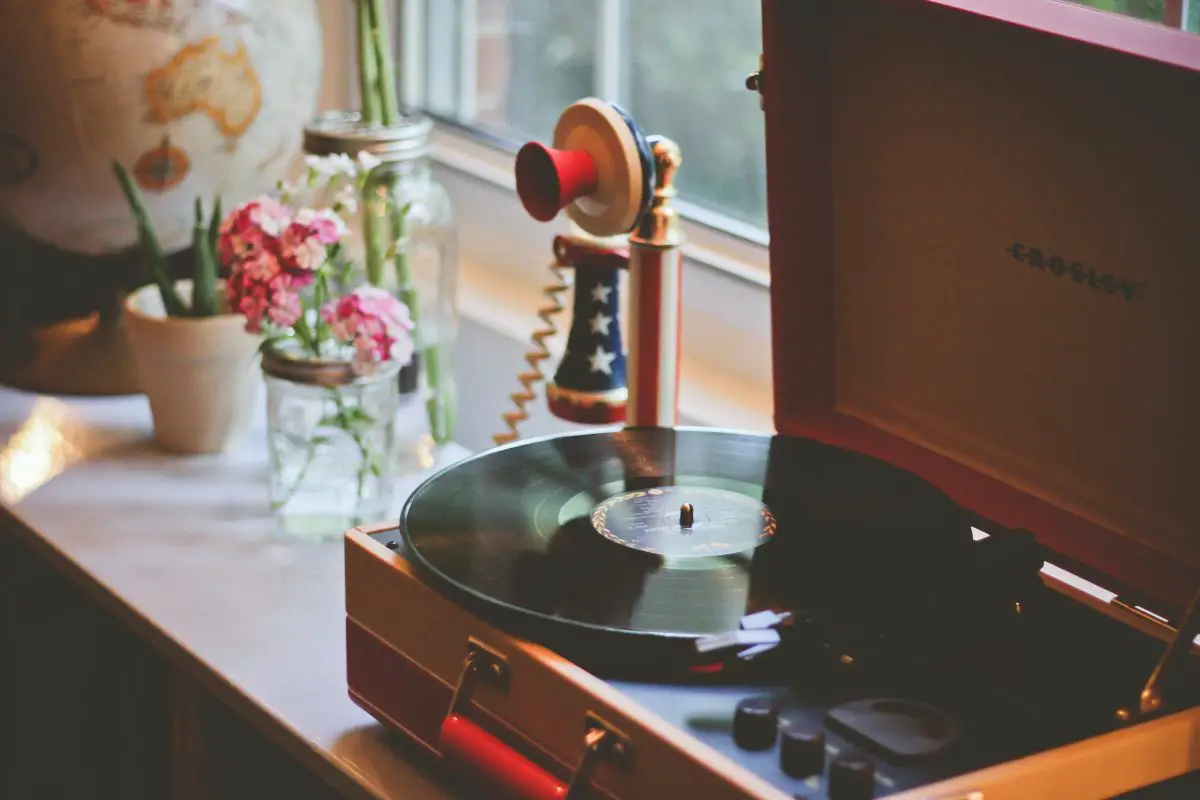
A turntable is a standalone unit used to hold and spin records, creating those mesmerizing music vibes. It’s the powerhouse behind the magic of vinyl. Picture it like this: your vinyl records are like the sweet ingredients of your favorite sonic recipe, and the turntable is the master chef who skillfully combines and serves them up.
When you place your vinyl record on the turntable, the needle (or stylus, if you want to be fancy) delicately nestles into the grooves of the record. As the turntable spins, this little needle grooves the music waves directly into your ears, delivering that sweet, pure analog sound.
AKAI Professional MPK Mini MK3

AKAI Professional MPK Mini MK3
What are the components of a turntable?
We’ve already established that the turntable is more than just a spinning platform for your beloved vinyl records. Now, it’s time to talk about the components that make this baby sing.
When it comes to turntables, it’s like building your own audio dream team. You’ll need a few external components to achieve that audio nirvana. Here’s a breakdown of the key players:
1. Speakers
Speakers are the gatekeepers to your auditory paradise. They take that electrical signal from the turntable and transform it into audible sound waves. From thumping bass to silky-smooth melodies, speakers give your music the voice it deserves. Choose wisely, for they will be your trusty sonic companions.
The amplifier ensures your music reaches its full potential, delivering sonic bliss to your eager ears.
2. Amplifier
Now, let’s talk about the amplifier. This magnificent device takes the signal from your turntable and cranks up the volume, adding that extra punch and power to your tunes. It’s like adding a turbocharger to your music engine, pushing it to new heights. The amplifier ensures your music reaches its full potential, delivering sonic bliss to your eager ears.
3. Preamp
Last but not least, we have the preamp. This little wizard works behind the scenes, preparing the audio signal from your turntable for a premium listening experience. It smooths out any rough edges, balances the sound, and ensures optimal quality. Think of it as the secret ingredient that elevates your music to the next level.
Now that we’ve dissected the components, it’s time for a quick rundown of dos and don’ts when it comes to turntable setups:
| Dos | Don’ts |
|---|---|
| Invest in quality speakers. | Don’t skimp on external components. |
| Ensure proper matching of components. | Avoid cheap or unreliable equipment. |
| Use a pre-amp to fine-tune the signal. | Don’t neglect proper cable connections. |
| Experiment with different setups. | Avoid excessive volume levels. |
| Seek expert advice if needed. | Don’t underestimate the power of calibration. |
Choosing between a turntable and a record player
When it comes to convenience, record players take the spotlight. They come as complete audio systems, including built-in speakers, amplifiers, and even the ability to play different file formats. It’s like having a musical Swiss Army knife at your fingertips. They are user-friendly, plug-and-play machines that require minimal setup. Perfect for those casual listeners who want to enjoy their tunes without any hassle.
But hold on a minute! If you’re serious about sound quality and crave that pure, unadulterated analog experience, a turntable is the way to go. Yes, it requires external components, setup, and some fine-tuning, but trust me, it’s worth it. Turntables offer superior sound reproduction, capturing the nuances and warmth of vinyl records that make audiophiles weak in the knees. It’s like rediscovering your favorite songs in a whole new dimension.
Here’s a quick comparison of the features of a turntable and a record player:
| Features | Turntable | Record Player |
|---|---|---|
| Sound Quality | Offers superior sound reproduction for audiophiles | Comes with built-in speakers, an amplifier, and pre-amp |
| Customization | Allows greater customization options for DJs and producers | Limited customization possibilities |
| File Formats | Primarily plays vinyl records | Plays vinyl records and supports other file formats |
| Built-in System | Requires external speakers, amplifier, and pre-amp | Comes with built-in speakers, an amplifier, and a pre-amp |
| Setup | Requires additional components and setup | Ready to play out of the box |
| Size | Generally compact and sleek design | Bulkier and larger footprint |
Choosing between a turntable and a record player boils down to your priorities. Here are some factors to consider:
1. Convenience and ease of use
- Are you looking for a plug-and-play experience?
- Do you want a compact, all-in-one system?
- Are you willing to sacrifice some sound quality for convenience?
2. Sound quality preferences
- Are you an audiophile who craves high-fidelity sound?
- Do you want to immerse yourself in the true essence of vinyl?
- Are you willing to invest in additional components and setup for better sound?
3. Budget considerations
- What’s your financial situation?
- How much are you willing to invest in your audio setup?
- Can you allocate funds for external components if needed?
It’s a tough decision, my fellow music enthusiasts, but remember, there’s no right or wrong answer. It all depends on what floats your musical boat. So weigh your options, trust your gut, and let the beats guide you toward your perfect audio companion.
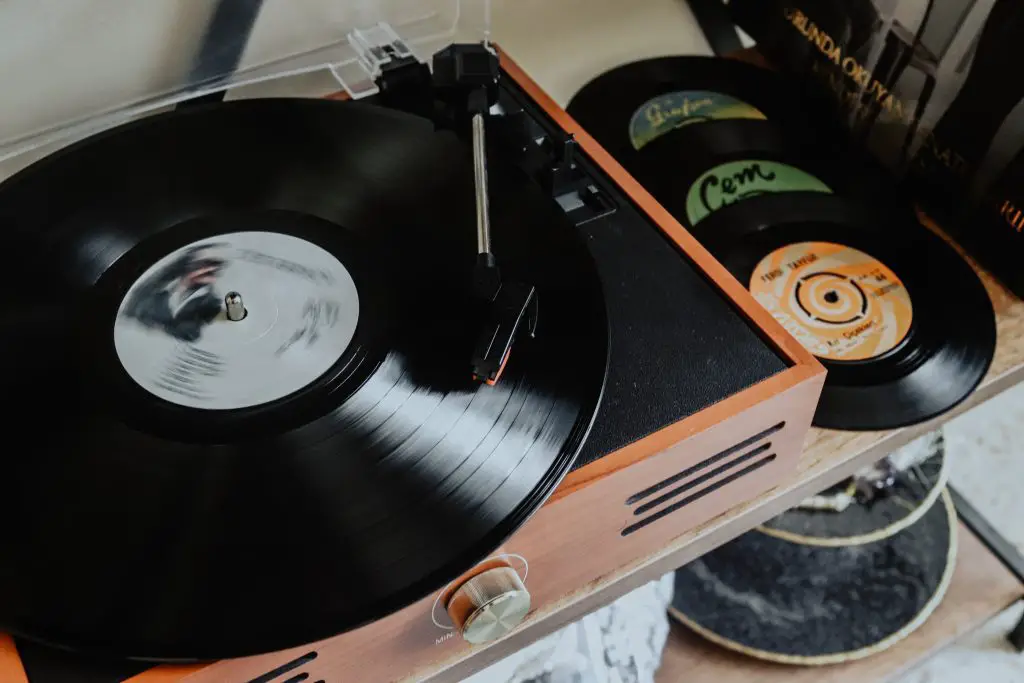
Advantages and disadvantages of turntables
Let’s weigh the pros and cons of turntables to help you make a sound decision.
Advantages of turntables
Looking to groove to the sweet tunes of a turntable? Here’s why it might be the perfect choice:
- Superior Sound Quality: Turntables offer unmatched sound reproduction, capturing the warmth and richness of vinyl records.
- Customization: DJs and music producers can unleash their creativity with turntables, thanks to greater customization options.
- Analog Experience: Turntables provide a nostalgic and authentic analog music experience that vinyl enthusiasts adore.
Disadvantages of turntables
Before committing to a turntable, let’s consider a few potential drawbacks:
- Additional Components: Turntables require external speakers, amplifiers, and pre-amps, which means additional setup and investment.
- Limited File Format Compatibility: Turntables primarily play vinyl records, which may limit your music options compared to record players.
- Setup Complexity: Setting up a turntable involves some technical know-how and fine-tuning for optimal performance.
Keep these pros and cons in mind as you embark on your musical journey. Remember, the right choice depends on your personal preferences and the kind of experience you want to create.
If you want even more great tips and information, watch this video called “How Does a Turntable Work?” from the Science Channel YouTube channel.
Frequently asked questions (FAQ)
Do you still have questions about turntables? Below are some of the most commonly asked questions.
Can I use a turntable without external speakers?
Absolutely not, my friend! Turntables require external speakers to amplify the sound. They are designed as standalone units and do not have built-in speakers. So, make sure to rock those external speakers for the ultimate audio experience.
Can a record player play vinyl records only?
No way! Record players are versatile beasts. While they excel at playing vinyl records, they also support other file formats. So, whether you’re in the mood for some vinyl nostalgia or want to explore different music sources, a record player has got you covered.
Can I connect my turntable to a sound system or computer?
You bet! Turntables can be connected to various audio systems and even computers. All you need is the right cables and connections to hook up your turntable to external speakers or audio interfaces. Get ready to share those vinyl vibes with the world!
Final thoughts
We’ve danced through the grooves of turntables and record players, uncovering the wonders of analog music. From the magical mechanics of a turntable to the convenience of a record player, we’ve explored the rhythm-infused world of vinyl.
And did I cover everything you wanted to know? Let me know in the comments section below (I read and reply to every comment). If you found this article helpful, share it with a friend, and check out my full blog for more tips and tricks on the captivating realm of audio production. Thanks for reading, and may the groove be with you!
Key takeaways
This article covered the main topic of turntables and record players, exploring their differences, components, advantages, and disadvantages. Here are some key takeaways:
- Turntables are standalone units that require external components for sound amplification.
- Record players are complete audio systems, including speakers, amplifiers, and turntables.
- Turntables offer superior sound quality, customization options, and an authentic analog experience.
- Record players provide convenience, built-in systems, and support for different file formats.
- The choice between a turntable and a record player depends on individual preferences and priorities.



